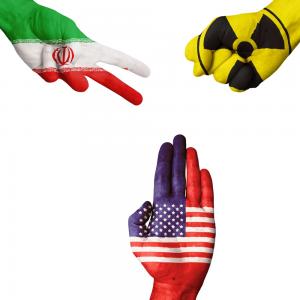Posts By This Author
Fatwas, Philosophers and Peace Games
Iranians tend to trust religion far more than they do politics. Accordingly, it could be helpful to formulate a potentially helpful Track Two initiative around Iran’s openness to religion as a precursor to discussing important secular issues. One possibility that comes to mind, especially if the current negotiations lead to further openness, is what one might call a “peace game.” Since Iran has been the focus of any number of war games, this would represent a peacemaking counterpart. However, rather than a scenario-driven exercise as most war games tend to be, a peace game would be more akin to facilitated brainstorming.
The basic concept would call for bringing participants from Iran and the United States together for a week to discuss what the Iranians proposed earlier, i.e. how to overcome the obstacles that stand in the way of a cooperative relationship. Participants for the game would be chosen from the ranks of respected religious, political, academic, and professional figures who (1) are not in government, (2) are known to be spiritually minded, and (3) have views that would command serious consideration by their respective governments. A religious framework for the discussions would be established at the outset, a world-class expert on negotiations would facilitate the “game,” and the final recommendations would be presented to both governments for appropriate consideration.
A Heart for Peace
A VARIETY OF EVANGELICAL peacemaking efforts have sprung up in recent years, from the Two Futures Project, which seeks a world without nuclear weapons, to the World Evangelical Alliance’s Peace and Reconciliation Initiative, which seeks to redress the fact that “in our zeal for evangelism, we have often overlooked the biblical mandate to pursue peace.”
This fall, evangelicals from a range of viewpoints gathered at Georgetown University in Washington, D.C., exploring what a distinctive evangelical contribution to peacemaking might look like. The essays below, unless otherwise noted, are taken from the first Evangelicals for Peace conference, a “summit on Christian moral responsibility in the 21st century.” Organizers hope to publish a book with the entire collection of talks. —The Editors
-----
‘All the Easy Jobs Have Been Done’
Standing on a rich tradition of peace and transformation
by Geoff Tunnicliffe
WHY IS PEACEMAKING an important topic for evangelicals? As a global community of 600 million Christians, our churches are confronted daily with the impact of illegal weapons. Our hospitals treat the victims of violence. Our church leaders counsel the traumatized. All forms of conflict negatively impact our development programs. Our aid agencies seek to care for and rehabilitate child soldiers. Our inner-city communities are confronted with the outcomes of gang warfare.
For all of us who say we are followers of Jesus, as we observe or experience the brokenness of our world, it should break our hearts. If we feel the pain so deeply, I can’t imagine what our loving God feels. The One who is called the Prince of Peace. The One who laid down his life, so that we could be reconciled to God and each other.
The World Evangelical Alliance’s engagement in peacemaking stands on the rich traditions of evangelicals who have devoted themselves to being instruments of social change and transformation. We want to say loudly that we evangelicals want to be on the forefront of peacebuilding. All the easy jobs have been done. It’s just the tough ones that are left. It requires clear vision to face these challenges.
We as evangelicals are committed to working together with those in and outside our community for the good of all. May God empower us through the work of his Spirit to be his ambassadors of peace and reconciliation.
